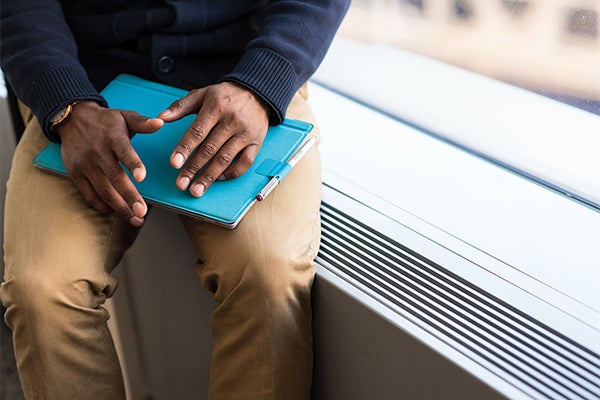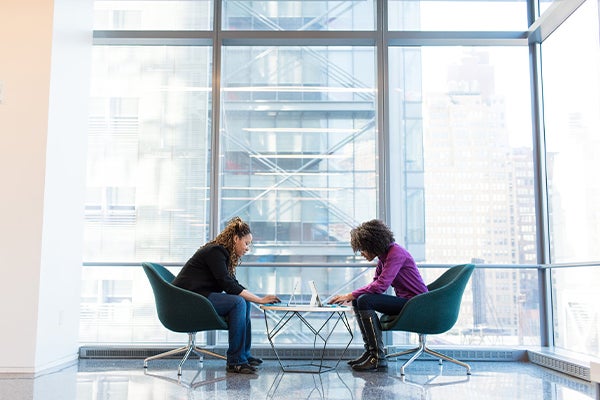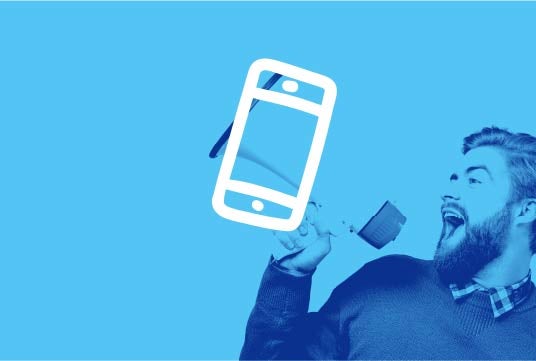Skype and video interviews have become increasingly common in the last decade.
While many of us are not entirely at ease with having a job interview via video, candidates who can prepare for them effectively will increase their chances of impressing their interviewer over someone else in the process.
"Not only has there been an increase in the frequency of Skype interviews over the past few years, but we have also noticed the technology is being favoured when dealing with first round interviews, whether candidates are based in the same country or not" says Özlem Simsek, Director of Walters People Belgium.
Here are our 6 top tips to help you embrace technology and master a Skype interview.
1. Dress to impress not distract
It is vital to make a first good impression so dress as you would for any normal interview, you will look and feel the part. Darker colours usually work best on camera and try to stay away from stark white or overly busy patterns. Try to stay clear of overpowering lip gloss and sparkly jewellery which can also be distracting.
2. Use notes subtly
Have some notes handy if you feel they are helpful, but make sure to be familiar enough with their content to only glimpse at them on occasion. Reading your notes like a script or sounding like you are delivering a pre-prepared speech can break the natural flow of the interview and distract the interviewer from how genuine you sound.
3. Remain engaged
"It may feel unnatural at first, but train yourself to look into the camera rather than at the screen. This will give your interview the impression that you are making direct eye contact with him/her."
Keep a good posture and make sure you are sitting close enough to the screen so that you can clearly see the interviewer’s facial expressions.
4. Pick your backdrop wisely
While your interviewer won’t expect you to be in a work environment, select a location that is professional and free from distractions. Pick a neutral, tidy, well lit location, with preference for natural lighting. Make sure your source of light comes from behind the screen so it is not shining directly into the camera.
5. Be prepared for technical issues
Make sure you are in an area with a reliable internet connection to make technical problems as unlikely as possible. If you do experience a technical glitch or a loss of connectivity, always ask the interviewer to repeat the question. If the problem persists, politely mention it to your interviewer and ask to reconnect to avoid missing any crucial information. Enunciate your words clearly, monitor the speed and tone of your speech and make sure that you speak loudly enough. Reassure your interview that you are following by making acknowledgement sounds like ‘hmm’ or ‘yes’.
Test your equipment well in advance as well as immediately before the interview begins and ensure your microphone volume is set to an appropriate level.
6. Finish on the right note
Summarise your main points and thank the interviewer for his or her time, just as you would with a face-to-face interview. Make sure you have confirmed any next steps before ending the interview.
Skype is simple to use, but it might take some time and practice to master. Some other things to consider:
- Your username - Think about your Skype username and what kind of first impression it will create. If it is not professional, create a new account with an appropriate username and use this for work purposes.
- Body language – Physical cues can be even more noticeable on Skype – so avoid crossing your arms or hunching your shoulders. Centre yourself a medium distance away from the camera and keep the upper halves of your arms showing as well as some free space above your head to allow the interviewer to best read your body language.
- Interruptions – When the time comes for the interview itself, be sure that you won't be disturbed . Notify anyone around you. If you have pets, put them out of the room.
- Documents – Have a printed version of any documents you have emailed to your interviewer available. Keeping your email account open is also a good idea in case you need to share any new documents with your interviewer.
- Headphones – these can be a good way to avoid creating audio feedback and will often provide better sound quality than speakers. If you decide use them, make sure they are subtle in appearance so as to not distract the interviewer.
For more interview advice, check our interview tips.














